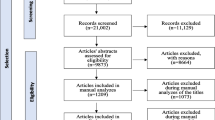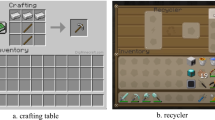Abstract
Game-based learning has shown promise in teaching computer science in schools by enhancing student engagement and motivation. This paper presents a case conducted in an Austrian secondary school involving 23 students. The students were divided into two groups that acquire fundamental skills in programming - one group using game-based learning and the second group in traditional learning. This study aims to incorporate the serious game sCool into computer science education and compare the benefits of game-based learning compared to traditional methods. The study expresses that students within the game-based group showed lower levels of motivation for computer science compared to those using traditional methods. Additionally, the game-based learning approach resulted in similar retention of computational thinking knowledge among the students one year after the study was conducted. The findings support the idea that incorporating serious games in computer science education can lead to improved learning outcomes. The paper concludes by emphasizing the importance of considering motivation levels in designing effective educational games and suggests further research in this area to enhance computational thinking teaching.
Access this chapter
Tax calculation will be finalised at checkout
Purchases are for personal use only
Similar content being viewed by others
References
Pho, A., Dinscore, A.: Game-based learning. Instruction Section (2015)
Carlo, H.A.P., Featherstone, G., Houghton, E.: Game-based learning: latest evidence and future directions (NFER research programme: Innovation in education). 04 (2013)
Wing, J.M.: Computational thinking. Commun. ACM 49(3), 33–35 (2006)
Teach.com. Teaching methods (2020). Accessed 09 Jan 2022
Cicchino, M.I.: Using game-based learning to foster critical thinking in student discourse. Interdisc. J. Probl.-Based Learn. 9(2), 4 (2015)
Jun, S., Han, S., Kim, S.: Effect of design-based learning on improving computational thinking (2016)
Grand Canyon University. What is game-based learning? (2021)
Theodoropoulos, A., Lepouras, G.: Digital Game-Based Learning and Computational Thinking in P-12 Education: A Systematic Literature Review on Playing Games for Learning Programming, pp. 159–183 (2020)
Hsu, Y.-T.H.T.-C., Chang, S.-C.: How to learn and how to teach computational thinking: suggestions based on a review of the literature. Comput. Educ. 126, 296–310 (2018)
Korur, E.K., Oner, D.: Coding with minecraft: the development of middle school students’ computational thinking. ACM Trans. Comput. Educ. 22, 1–19 (2022)
Steinmaurer, A., Pirker, J., Gütl, C.: sCool - game-based learning in computer science class a case study in secondary education. Int. J. Eng. Pedagogy 9(2), 35–50 (2019)
Araujo, A.L.S.O., Santos, J.S., Andrade, W.L., Guerrero, D.D.S., Dagiene, V.: Exploring computational thinking assessment in introductory programming courses. In: 2017 IEEE Frontiers in Education Conference (FIE), pp. 1–9, Indianapolis, IN, October (2017). IEEE
Vilnius University. Bebras international challenge on informatics and computational thinking
Author information
Authors and Affiliations
Corresponding author
Editor information
Editors and Affiliations
Rights and permissions
Copyright information
© 2024 The Author(s), under exclusive license to Springer Nature Switzerland AG
About this paper
Cite this paper
Bajramović, A., Steinmaurer, A., Gütl, C. (2024). Playing Video Games to Learn Computational Thinking? A Case Study of Game-Based Learning in Secondary CS Education. In: Auer, M.E., Cukierman, U.R., Vendrell Vidal, E., Tovar Caro, E. (eds) Towards a Hybrid, Flexible and Socially Engaged Higher Education. ICL 2023. Lecture Notes in Networks and Systems, vol 901. Springer, Cham. https://doi.org/10.1007/978-3-031-53022-7_47
Download citation
DOI: https://doi.org/10.1007/978-3-031-53022-7_47
Published:
Publisher Name: Springer, Cham
Print ISBN: 978-3-031-53021-0
Online ISBN: 978-3-031-53022-7
eBook Packages: Intelligent Technologies and RoboticsIntelligent Technologies and Robotics (R0)




